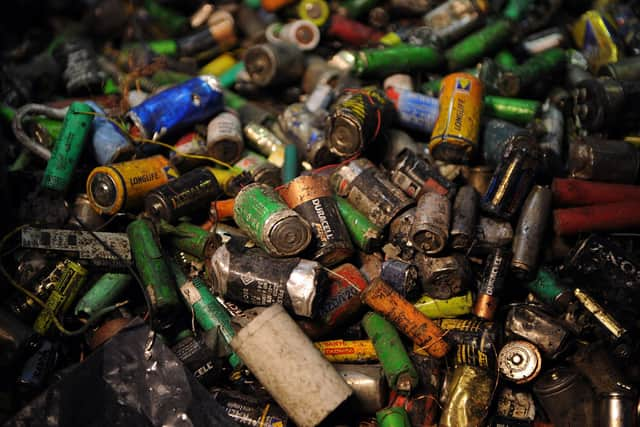Fossil fuels are used to produce everything from food to pharmaceuticals. Genetic science can change that – Lorraine Kerr
Scotland has set a target of net-zero carbon emissions by 2045, and a policy position against new oil and gas extraction. But what can replace fossil fuels and their role in the production of almost everything we use every day – from food to pharmaceuticals to materials?
The answer is bubbling away in labs in our universities or, more likely, creating new DNA sequences at a DNA assembly facility like the Edinburgh Genome Foundry. This solution, called engineering biology, means using cells as mini factories and reprogramming them to break down waste and build something new.
Advertisement
Hide AdAdvertisement
Hide AdFor example, Professor Stephen Wallace is using microorganisms to eat plastic bottles and produce adipic acid – a crucial ingredient in the manufacture of nylon, cosmetics and pharmaceuticals. And the only by-product of this process is water, rather than greenhouse gases.


Professor Louise Horsfall’s engineered microorganisms can recover technology-critical metals from contaminated soil and waste batteries. Currently, these metals, used in laptops, phones, electric vehicles, wind turbines and solar panels, are mined elsewhere, damaging the earth, and must be imported into Scotland and the UK.
A recent McKinsey report estimated that the global economic impact of engineering biology could be $2-4 trillion within 20 years. So what do we need in Scotland to move from a fossil fuel economy to a bioeconomy? Firstly, we need to invest enough in research like the above.
The UK Government’s Department for Science, Innovation and Technology recently announced £2 billion of investment in engineering biology over the next ten years and Scottish universities need to be ready to respond to funding calls with an interdisciplinary approach.
Secondly, we need to incentivise industry to introduce sustainable, biobased manufacturing. Currently, costs are high in comparison to fossil-based production, but by using waste as a resource we can start to address this issue.
Professor Wallace is already working with industry across the UK and worldwide on small projects to develop higher value products such as the food flavouring vanillin, but to meet net-zero targets we really need to focus on commodity chemicals, like the ubiquitous adipic acid that is currently produced in the oil refineries we see by the motorway.
To grow and scale up the proof of concepts that are being developed by academics, we need manufacturing infrastructure, like large fermentation sites, to produce enough of the microorganisms and sustainable products we need. And we must plan these centres strategically, as they can serve as hubs to create new supply and value chains that maximise every stage of production processes.
By-products from one company’s process can be raw materials for a biotech company – for example Edinburgh start-up MiAlgae, which turns co-products from whisky production into fish feed. For this, we also need to increase collaboration between sectors, which would be helped by a national bioeconomy strategy. The 2022 National Plan for Industrial Biotechnology is a good start.
Advertisement
Hide AdAdvertisement
Hide AdLastly, we need to invest in talent and skills, to ensure we have the workforce required across biosciences, technology, data science and entrepreneurship for new high-quality jobs. By moving towards becoming a bioeconomy, Scotland can accelerate the just transition we so desperately need away from fossil fuels.
Lorraine Kerr is Edinburgh Innovations’ director of strategic partnerships, North America and global
Comments
Want to join the conversation? Please or to comment on this article.